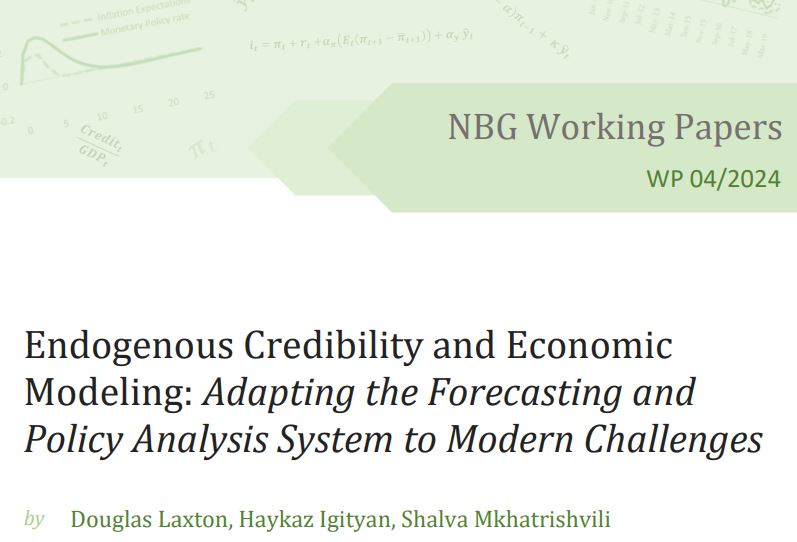This working paper by Douglas Laxton, Haykaz Igityan, Shalva Mkhatrishvili, is the part of the National Bank of Georgia’s Working Paper Series that aim to present original research contributions relevant to central banks.
This paper introduces the Forecasting and Policy Analysis System (FPAS) Mark II, which incorporates Mervyn King’s imperative for economic models to reflect the endogenous nature of central bank credibility based on policy actions. The original FPAS, predominantly utilized by inflation-targeting central banks, has been constrained by its focus on baseline projections and local approximations. These
limitations hinder its capacity to accurately reflect the evolving credibility of central banks in response to their policy choices. Credibility specifically refers to how anchored are long term inflation expectations in bond markets and by wage and price setters but also a broader consideration is whether long-term real interest rates and the exchange rate operate as shock absorbers.
FPAS Mark II integrates “Monetary Policy as Risk Management” (MPRM), enhancing the framework’s ability to address significant uncertainties and adapt to changing economic conditions. This new approach advocates a shift from a baseline projection to a scenario-based strategy that attempts to anticipate a diverse range of economic outcomes including non-linear such as time-varying policy credibility. By doing so, FPAS Mark II not only adheres to King’s vision by embedding endogenous credibility into the fabric of monetary policy but also equips policymakers to navigate complex financial landscapes more effectively, avoiding potential pitfalls and better managing periods of uncertainty.
Full working paper is available here

